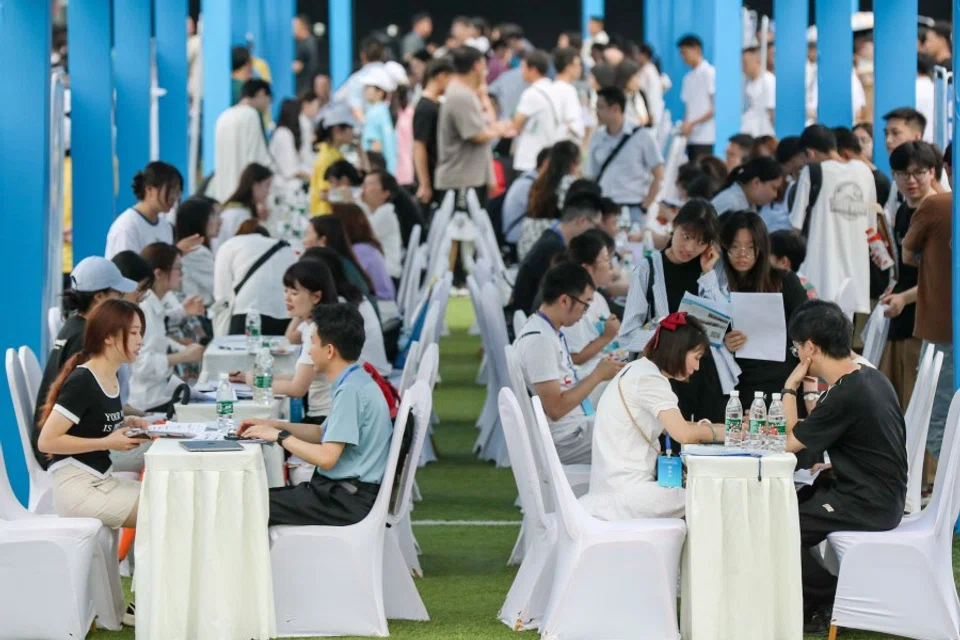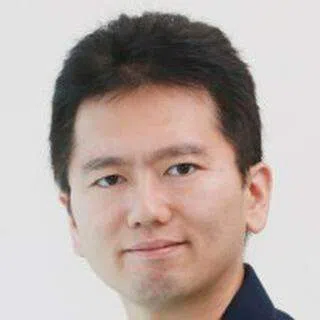Xi Jinping calls on young Chinese to embrace hardship
Even as young people are struggling to find jobs amid high unemployment and a tough economy, Chinese President Xi Jinping has called on them to "actively seek hardship". Such messaging is made in the spirit of self-motivation and self-improvement, but is it a long-term solution to address the confusion and anxiety among young Chinese people? Zaobao correspondent Edwin Ong finds out.

Amid rising youth unemployment in China this year, Chinese Communist Party (CCP) General Secretary Xi Jinping has called on young people to "actively seek hardship" (自找苦吃). The intention is likely to remind the younger generation to step out of their comfort zones and strive for excellence in adversity. However, it also reflects to some extent the tough and complex economic situation that China faces both domestically and internationally, and the fact that the younger generation in China has not had a chance to catch their breath with the lifting of the zero-Covid policy after struggling through three years of the pandemic.
With over 11 million college graduates set to enter the labour market this year, official data shows that in May, the youth unemployment rate among 16 to 24-year-olds in China reached a record high of 20.8%, nearly four times higher than the overall unemployment rate of 5.2% among the working population.
Young people should actively seek hardship
Replying to a letter from students of China Agricultural University in May this year, Xi affirmed the idea that young people should actively seek hardship, stressing that the youth of China in the new era should possess such "spirit and vitality".
... sparked public speculation as to whether the authorities would once again embark on a movement of sending urban youth to rural areas.

Chinese state media subsequently published follow-up articles, noting that Xi has spoken more than once of actively seeking hardship, and that it is not just what he asks of himself, but is also what he expects of the young people of the new era. The People's Daily even published Xi's reply on its front page, which sparked public speculation as to whether the authorities would once again embark on a movement of sending urban youth to rural areas.
... it would probably be difficult to accept the harsh reality that prosperity is no more - they would be confused and anxious about why they should give up stability and choose to endure hardship.
In fact, this is not the first time Xi has called on young people to work hard and endure hardship. After becoming president in May 2013, Xi had a discussion with representatives of young people from all walks of life and emphasised that "choosing to endure hardship in youth is choosing to reap rewards". On an inspection tour of Henan province last October, he also stressed that "the younger generation should inherit and carry forward the spirit of enduring hardship, self-reliance, and hard work, and discard any arrogance and impatience".
Hard times hard to accept
While the intention of China's top leadership may be to encourage young people to face challenges head-on, for the generation that grew up after China joined the World Trade Organization (WTO) and has lived in an increasingly prosperous socioeconomic environment, it would probably be difficult to accept the harsh reality that prosperity is no more - they would be confused and anxious about why they should give up stability and choose to endure hardship.

In fact, the Chinese economy not only saw slower growth during the pandemic, but its development model also entered a critical transitional stage, shifting from being primarily reliant on low-cost manufacturing to being supported by high-tech and service industries.
But at the same time, since the second half of 2021, the authorities have been cleaning up high-growth industries such as technology, education, entertainment, and real estate, in order to speed up goals such as common prosperity and national security. This has resulted in setbacks for industry giants such as Tencent and Alibaba, which used to rely on college graduates as their main workforce.
After that, there was a lack of jobs in sectors such as business, finance, media, and technology, exacerbating the problem of a skills mismatch in China's labour force and worsening employment prospects for young people.
A blow to the self-esteem
As the economic pie continued to shrink during the pandemic, social mobility became increasingly difficult. In recent years, some young Chinese people have begun to give in to reality. They have given up on intense competition, and even embrace a laid-back and unambitious lifestyle. Those who can are "running" (润) abroad, clearly lacking confidence in the prospects of staying in the country.
For some highly educated overachievers, it is also a significant test of their self-esteem.
Facing a sluggish job market, Chinese youth who still aspire to strive and survive are faced with more than just hardship. For some highly educated overachievers, it is also a significant test of their self-esteem.

Last week, there was news of three Chinese university graduates who were hired by the Wenzhou Airport Group in Zhejiang as "bird repellent officers"; they had graduated from Zhejiang University with a degree in animal science, Henan Polytechnic University with a degree in civil engineering, and Zhejiang Sci-Tech University with a degree in architecture respectively.
Some netizens felt that "even top students need to face the reality that working is better than just living off their parents".
Furthermore, a returning graduate from the University of London and one from Belarusian State University were also employed by Wenzhou Airport as "regular security inspectors". On 6 June, a representative from the airport group responded, stating that the recruitment process was based on "selecting the best candidates".
This news sparked debate among netizens about talented individuals being underutilised, and lamenting that "diplomas are worth nothing in a poor economy" and that "top students working as security inspectors shows how crazy the world has become". Some netizens felt that "even top students need to face the reality that working is better than just living off their parents".
Long-term solutions needed
According to a survey on employment of returning overseas graduates released last year, since the outbreak of the pandemic in 2020, there has been a significant increase in the number of returnees seeking employment, to more than one million per year in the past two years, adding pressure to fresh graduates seeking jobs.
In late March this year, there was a case of a 38-year-old graduate of Sichuan University with a master's degree in Chinese philosophy shifting to food delivery after being unemployed for six months. Perplexed netizens lamented the waste of educational resources when knowledge acquired through decades of hard work is only useful for ten years.

Although it is said that no job is above or below any other, and a true man should be adaptable, a growing number of college students cannot find jobs that match their educational qualifications, which has become a major concern in Chinese society.
... geopolitical tensions have reduced foreign investment in China, while artificial intelligence and mechanisation are putting people out of jobs.
In the post-pandemic era, China's economy has been taking bumps and knocks; the once-thriving economy with opportunities everywhere is gone, which has impacted the confidence of those in China and led to high savings rates and weak consumer spending. In addition, geopolitical tensions have reduced foreign investment in China, while artificial intelligence and mechanisation are putting people out of jobs. Actively seeking hardship reflects the spirit of self-motivation and self-improvement, but it is not the long-term solution to address the confusion and anxiety among young Chinese people.
Injecting new energy and vitality into the macro economy and reigniting market confidence is probably a more practical and comprehensive solution.
This article was first published in Lianhe Zaobao as "习近平呼吁中国年轻人"自找苦吃"".
Related: Solving China's soaring youth unemployment | Is China's younger generation having it better? | Why both old and young are against raising the retirement age in China | China's first quarter figures positive, but pandemic leaves a long shadow | More Chinese youths visiting temples to seek solace





![[Photos] Fact versus fiction: The portrayal of WWII anti-Japanese martyrs in Taiwan](https://cassette.sphdigital.com.sg/image/thinkchina/3494f8bd481870f7c65b881fd21a3fd733f573f23232376e39c532a2c7593cbc)